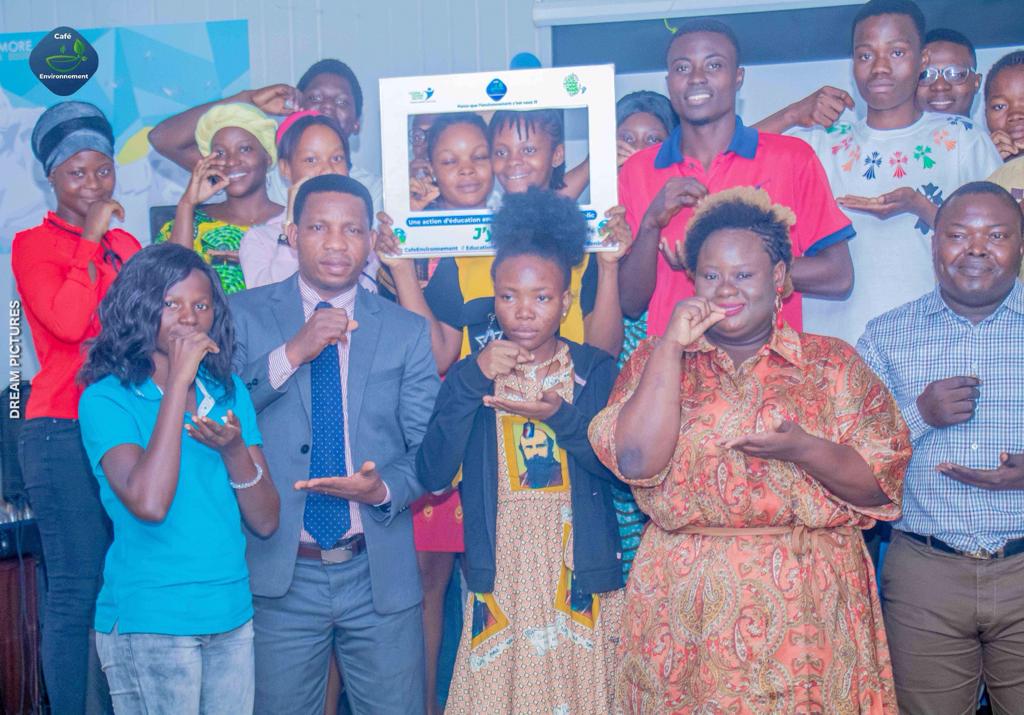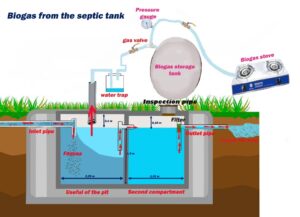1- Introduction
Nowadays, many children spend most of their childhood, confined in their houses and homes being trap by all sort of new technology’s gadgets. Mothers too are no exception. Human bond with nature is progressively disappearing. Environmental pollution and environmental ignorance linger in our societies. Urban growth is not helping the situation with the destruction of greenery and natural environment. Environmental habits are not applied in families and environmental protection values are not taught. Thus, how and when should mother provide their children with knowledge or improve their education on environment? In this line, there is reason to be concerned and therefore to initiate a general awareness with the adoption of a responsible environmental culture within our society in which mothers occupy an essential place.
2- What is environmental education?
Environmental education is a process of behavior oriented to the preservation of the environment. It could be defined as teaching about the interactions between the individual and his or her environment by integrating natural, human and social sciences with the aim of improving the awareness of our living environment. Environmental education contributes to a better understanding of socio-economic, cultural and ethical interdependencies and thus enables responsible actions. In fact, it is about reshaping and maintaining this traditional link between people and their natural environments. It is in this respect that the role of mothers is prior in environmental education.
a- Environmental education and sustainable development
The environment is a pillar of sustainable development. Environmental education and emlightment for sustainable development contribute to global education from ecological, socio-economic and cultural issues. The international community today focuses on encouraging the will to act and to improve the competence of human beings to manage natural resources respectfully. It is for this reason that many organizations such as the Sustainable Act from Africa (SAFA) association are working on the site of international solidarity. Through awareness programs such as the “environmental café”, an initiative of the organization “Terre à Terre Benin”, which contributes to this environmental education action to the general public and particularly among women.
3- Woman and Mother in the Society
It is often said that the woman is the mother of humanity. We can see the importance of the mother in the act of giving life as well as in environmental education. She contributes to the perpetuation of our species and to the preservation of harmony in society.
a- The uterine environment, the beginning of human life
The woman’s womb is the first environment in which the human being grows. The woman is the architect in the process of perpetuation of our species. Her main responsibility is to keep the uterine environment clean and free from any disease or from the negative and deadly influences. Her main role is to take care of the fetus and give it a healthy and balanced diet during pregnancy. After the birth, the mother should be in the forefront of the child’s environmental education and training.
b- Woman and Family:
The woman today tries to reconcile professional and family life in addition to her natural responsibility to transmit and maintain life. She is at the center of preventive behaviors in the family entity and in the construction of the societal structure. Mothers guarantee the responsibilities of health and education in the family through activities such as vaccination, nutrition, house chore, childcare, etc. In addition to these, mothers are also in charge of environmental education within the family.
4- Importance of a mother in the development of the environmental awareness of a child
After proven her ability to put to birth and her caring attitude, the woman impacts the children education including the moral and emotional aspects. It’s the second important point in the woman’s role in society. Knowing the fundamental psychology of the child is formed between 0 to 7 years, period the child is very closed to his/her mother, it is easy to witness the extend of the mother’s psychological influence on the child. Consequently, in order to build a better environmental awareness in the child and in general on the coming generations, it is important to emphasize on the impact of mothers in the environmental education.
a- Build up ecological awareness for the youths
It is necessary that children should be conscious of the cause of the environmental disruptions and its impact on people. It is also important that education should always starts and ends at home. It should be done through discussion, using family experience as example in the domain of environmental protection. It is advisable to accustom the child to sensitivity and interactions with nature from tender age. If the child is not allowed to play outside, dig holes, discover spiders, insects, birds and plants, he will be less susceptible as an adult, to explore, respect or even protect the nature. The mother should help the child to develop a sense of responsibility towards the environment and the society. The contribution of the mother in the education of the environment goes beyond greening. It becomes a permanent commitment to build up eco gestures in the mind of the child.
b- The child environmental psychology : a permanent supervision
The environmental psychology has proven that there is no child who mastered the art of hygiene by himself. Instead, he acquired it through the unrelenting efforts of parents within a family unit. The child will learn how to brush his teeth, wash his hands, take his bath regularly, eat well, etc. It is therefore with the supervision of the mother that the pupil will acquire hygiene, security and environmental skills. It concerns a fundamental mechanism in the transmission of the pupil’s know-how that generally, mothers are vectors. This indeed confirms the impact of mothers in the environmental education.
5- Impact of woman in raising awareness of environmental conservation
The action plan of the fourth world conference on women in Pekin in 1995 was addressing already the fundamental role of these latter on the adoption of consumption and production patterns, equally on the management of natural sustainable resources and environmentally sound. Beyond the family structure, the woman continues to play an important role in raising awareness of environmental conservation. In towns and villages, women undergo many activities (housewife, maid, small businesses, agropastoral activities) income-generating or not. These activities generally have a close relationship with the environment. Women do not intervene enough on the education and conservation of environment. In Africa in general and Cameroon in particular, efforts are perceptible with regard to school enrolment and women’s autonomy. But regarding the environmental education, the impact of mothers is still obstructed by many difficulties.

6- Obstacles to women contribution on environmental education
Children education is as important as parent education notably that of mothers. There are many obstacles to mothers’ contribution on environmental education such as:
- lack of women interest in ecology,
- lack of awareness programme and/or capacity reinforcement of mothers on environmental education,
- Social situation characterized by the high rate of monoparental families.
a – Loss of financing and poor cooperation of public institutions in this domain
Political strategies in terms of sustainable development cannot yet be considered as reference to women role in terms of environmental education. There are few awareness projects or capacity reinforcement on environmental education targeting girls and women.
b- Poor ecological knowledge of women; mothers and their inadequacy on environmental education
The lack of knowledge on environmental problems is an obstacle to women contribution on environmental education. Furthermore, few women interviewed on this subject show their interest for this type of initiative. In addition to this, economic crisis, security problems or professional constraint are not to be neglected. We noticed in urban or rural areas that mothers have less knowledge on environmental education.
c- Social situation : prevalence of monoparental families
The role of women is of capital importance today. The rate of monoparental families is increasing. In France for example, three quarter of children living with separated parents pay visit to their father once a month (Villeneuve-Gokalp 1999). With regard to this, most of the fathers don’t demand to be in charge of their children, instead they are contented with free access to their children and leaving their education to their mothers. This attitude increases the stress of the responsibility on mothers.
7- Conclusion: some suggestions to mothers for a better environmental education
- Buy less toys: children don’t need mountain of toys. Moreover, it is advisable to buy less plastic toys because there are not easy to recycle.
- Before any purchase, ask yourself if it is really necessary: the preservation of environment implies also the reduction of consumption of unnecessary goods. it is advisable to buy quality goods and their maintenance can also be advantageous.To know if an article can be repaired before throwing it away and replaced it is a good attitude.
- Drink water from the tap: the production of plastic bottles for water is polluting and uses much fossil energy. And even if these bottles are recycled, the final point is usually the burying sites.
- Cook with the family : doing activities in family is advisable. Therefore, cooking together instead of buying food in restaurants help to reduce wrappens. Thus mothers play an important role in the environmental education and reduction of plastic wastes.
- Do drawings and handiwork with recycle materials : rolls of toilets papers, paper napkins, one side typed papers, boxes of carton, aluminium dishes,… your dust bin is full of treasure for the handiwork projects of your child. For example, the SAFA association initiated in 2019 a program PAPES-DIDAC to support schools with didactic materials (slates, rulers, desks, etc.) made from saw dust. Others initiatives of this kind should involve more mothers in the environmental education not only in schools but at homes too.
- Reduce food waste: when you throw less food you act responsible to environment and you save money.
- Giving priority to walking or cycling: use less cars when it is possible. This is a good way to fight against climate change, for vehicles caused 22% of greenhouse gas (GHG).
- Show to your child how to identify everything you can recycle: Place a recycle bin in the kitchen and make the children to thrown on their proper initiative plastic wastes, paper, cartons, etc.
- Eat less meat: cattle farming has a negative impact on the environment.
- Use cloth diapers: in order to reduce the huge quantity of disposable diapers in burying sites, buy cloth diapers. Its maintenance needs only enough water and energy.
- Organize party without surprise bags: replaced surprise bags with handiwork activities so that children can go back with their work of art. It is also advisable to avoid disposal dishes.
- Consume seasonal fruits and vegetables : the definition and impact of ‘‘consume local’’ is not unanimously agreed. But according to experts, it will the consumption of seasonal local food that will be the best for the environment. And mostly if its result from organic farming.
- Awareness and community work : involving in your community and in parents’ committee, contributing in the environmental education of the general public such as human investment of the area ( cleaning of roads) are all encouraging attitude to adopt.
- Pay it forward: “a colleague at work offers me her son’s clothes which are no more seizing him and I also do the same when there are not fitting my son, i pay it forward to another mother”. The same principle applies for all others articles of children in good state.
- Travel by public transport: if there is no public transport in your area, think of ride sharing.
- Take the children for walks: encourage children to discovery, touch grass, stones, trees, listen to songs of birds and wind. Being in a natural environment helps children to develop awakening capacity.
- Reserve space for a small garden: the child will be able to monitor the life cycle of plants and the various technics to take care of this garden will develop in the child healthy lifestyle close to nature. To share the fruits of labour with others and be aware of the link between effort and result, foster continuity. If there is no garden, plant together some seeds in a jar at home.
- Practice manual activities with children : dead leaves, unnecessary packaging, straw and plastic mineral water bottles; a bit of imagination for the decoration and the trick is done with your fantasist object homemade.
- Walk in nature : with this,the child develops positive attitude towards nature. Discuss with him each animal, bird, insect or flower you see. During your walk, show him the specificity of sceneries, explain to him why their beauty should be kept clean. You can go along with a bag in which you will throw all type of garbsages that you find. Your example will be used as reference not only by your child but also by others.
Reference :
- Alexandra Robert, Femmes, environnement et développement durable : un lien qui reste à tisser, Essai présenté au Centre Universitaire de Formation en Environnement de l’Université de Sherbrooke, Longueuil, Québec, Canada, mai 2011
- Geneviève Dagbégnon SAVI, Femmes fonctionnaires et éducation des enfants à Cotonou, mémoire de Maitrise de Sociologie anthropologie 2009 Université d’Abomey- Calavi (Bénin)
- Elena Cassin, pouvoirs de la femme et structures familiales, Revue d’Assyriologie et d’archéologie orientale Vol. 63, No. 2 (1969), pp. 121-148 (28 pages) Published By: Presses Universitaires de France.
- Sylvie Cadolle, Charges éducatives et rôle des femmes dans les familles recomposées, Dans Cahiers du Genre 2001/1 (n° 30), pages 27 à 52.
- Cafe environnement, une action d’éducation environnementale du grand public, session du 26 Mai 2022, Terre à terre Bénin
- DONIA FOR SUSTAINABLE DEVELOPMENT, Diagnostic de terrain : Le rôle des femmes dans la sauvegarde de l’environnement dans le Caza de Tripoli, FFEM et IEMed, 2018, p.7, https://www.euromedwomen.foundation/pg/fr/documents/view/8561/diagnostic-terrain-le-role-femmes-dans-protection-environnement-a-tripoli
- Université de Yale et Université de Columbia, Index de performance environnementale 2018, p. 4,https://epi.envirocenter.yale.edu/downloads/epi2018policymakerssummaryv01.pdf


